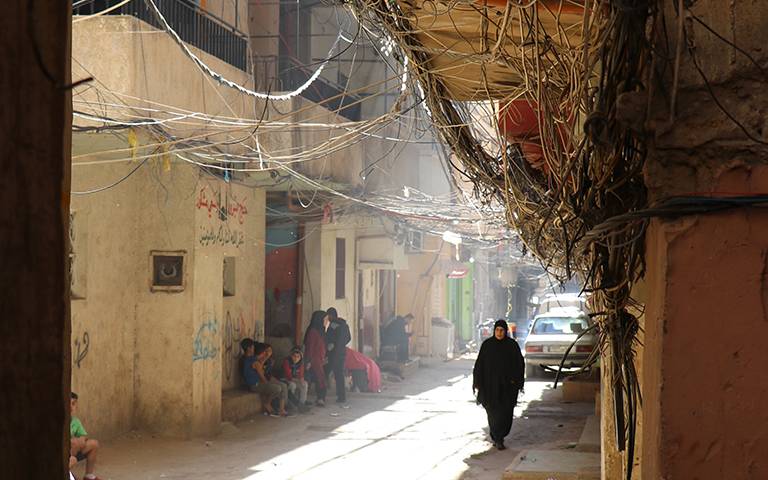Migration Research Unit publish landmark study on forced displacement
25 January 2022
The UCL Geography-based Migration Research Unit has released a major report on ‘Development Approaches to Forced Displacement from Syria in Lebanon, Jordan and Iraq’.

Led and written by Professor Elena Fiddian-Qasmiyeh, with co-authors Dr Aydan Greatrick and Dr Estella Carpi with Amal Istanbouli, the report offers a state-of-the-art review of over 260 sources published between 2016 and 2021.
A set of 3 Policy Briefs has also been published to disseminate policy-relevant findings and recommendations arising in the full report, including two thematically focused Briefs on Onward Migration and on Social Cohesion.
The report was commissioned by the Policy and Operations Evaluation department of the Ministry of Foreign Affairs of the Netherlands (IOB).
Organised into three parts, it covers onward migration, social cohesion, and refugees’ participation in local communities and economies.
Onward migration
Part one examines onward migration, the differences between aspirations and capabilities, and how these vary according to people’s characteristics, such as gender, age, class and ethnicity.
The study examines why particular groups of people and particular individuals choose to migrate from their host countries when the vast majority of refugees remain in their country of first asylum.
The evidence suggests that, when it is coordinated, foreign assistance that addresses livelihoods, rights and protections can promote the conditions that enable refugees to build sustainable lives for themselves and their families in host countries. However, foreign aid can also have unintended consequences, including when it unintentionally discriminates against specific groups of refugees on the basis of their nationality or gender.
Social cohesion
In part two, the report looks at the methods used to enhance social cohesion between refugees and members of the host communities in Lebanon, Jordan and Iraq, an issue of growing interest to policy-makers, donors, and humanitarian and development agencies.
An often contentious topic, social cohesion has typically tended to focus on the perceptions of the hosts and their views on the impacts of refugees on host communities.
However, the evidence presented in the report challenges the assumption that the presence of refugees leads to a negative impact on the host community.
The report also presents state-of-the-art evidence relating to the factors that either undermine or enhance refugee-host interactions and participation and how these are influenced by discrimination, violence and exclusion.
Local community participation
Part three looks at how changes in national, municipal and local level economies relate to the presence of refugees. Although these changes are often assumed to be negative, the report argues that these assumptions are empirically unfounded and greater attention must be paid to long-standing structural dynamics and the broader impacts of conflict.
The report examines labour laws, residency status, work permits, special economic zones, financial crisis and the impact of COVID-19 in Lebanon, Jordan and Iraq, and how these regional and national policies and dynamics impact on refugee participation in host communities and economies.
You can read the Full Report, Summary Report and Policy Briefs on the Refugee Hosts website. Visit our Migration Research Unit pages for updates.
 Close
Close

